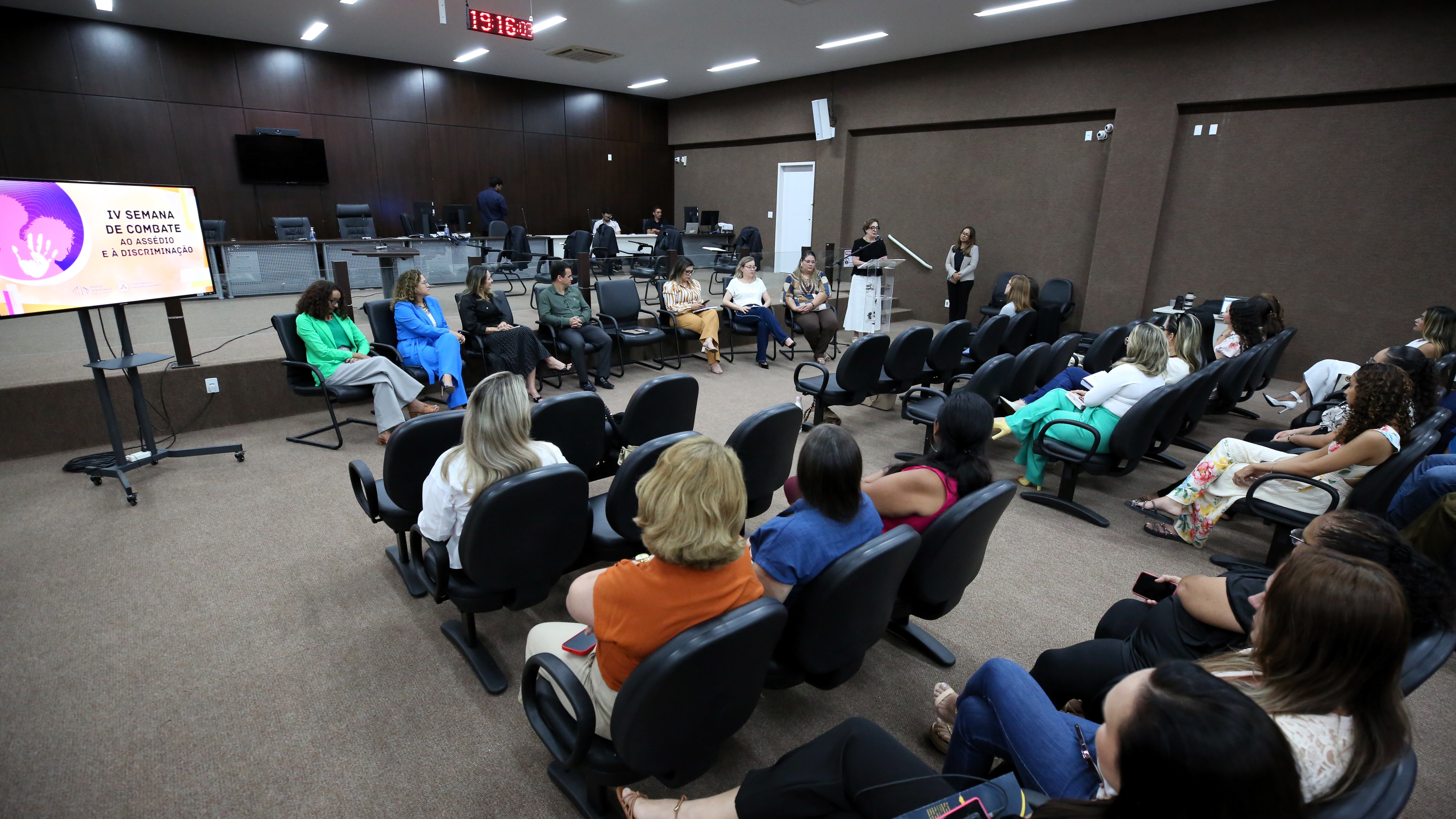
Magistrates and civil servers from the Forum of the district of Araguaína took part on Thursday (May 8th) in the Round of Conversation on “How to identify and overcome harassment in the workplace?”. The activity, which is part of the IV Week to Combat Harassment and Discrimination, promoted by the Commission to Prevent and Combat Moral and Sexual Harassment and Discrimination in the Judiciary, was also held in the municipalities of Palmas and Gurupi.
The meeting was mediated by Justice Ângela Haonat, president of the Commission in the 2nd Level (Cassedio2G), who emphasized the guiding and welcoming nature of the work of the commission:
“There is a common misconception that our work is all about punishment. Our aim is to guide, welcome and refer each situation according to the seriousness and need of the case,” she said.
The debate dealt with the identification of moral and sexual harassment practices, as well as their impact on the workplace. Almerinda Maria Skeff Cunha, a psychologist from the multidisciplinary team management group of the TJTO, warned about the harmful effects of these behaviors on the health of professionals:
“Harassment is not a disease, but one of the main causes of illness. Today we live under increasing demands for performance and productivity. This intensification of work can make people ill, because the body and mind have limits,” she said.
Audiovisual reflexion
The program also included a screening of the documentary: “The (in)visible pain”, produced by the Labor State Prosecution of Rio Grande do Sul. The work brings together testimonies from workers who have suffered bullying, as well as analysis from experts who contribute to understand the problem.
Presences
Also taking part in the Round of Conversation were Judge Fabiano Ribeiro, director of the Courthouse of the district of Araguaína; Hérika Mendonça Honorato, president of the Commission for Disciplinary Administrative Proceedings of the TJTO; Micheline Nolasco Marques, federal advisor to the BAR; Karla Beatriz Rodrigues, professor at Dom Orione Catholic College; Bárbara Camargo, a psychologist at NAPSI/TJTO; and Silvaneide Maria Tavares, a social worker at the center.




_thumbnail_thumbnail.jpg)
_thumbnail_thumbnail.jpg)
_thumbnail_thumbnail.jpg)
_thumbnail_thumbnail.jpg)
_thumbnail.jpg)
_thumbnail.jpg)
_thumbnail.jpg)
_thumbnail.jpg)
